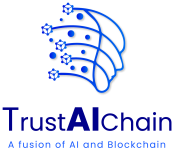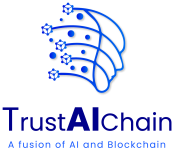While many organizations acknowledge the need for ethical AI, enforcing transparency and accountability remains challenging. This is where blockchain technology can play a crucial role. By leveraging blockchain audits, companies can ensure AI systems are fair, traceable, and compliant with ethical standards. This article explores how blockchain can combat AI bias and prevent ethical violations.

AI bias arises due to multiple factors:
- Data Bias – AI models learn from historical data, which may contain biases reflecting societal inequalities. For example, a hiring AI trained on past employment records might discriminate against certain demographics if historical hiring practices were biased.
- Algorithmic Bias – The design of an AI algorithm can inadvertently favor certain outputs. If a machine-learning model is not adequately tested for bias, it can reinforce and amplify existing inequalities.
- Human Bias – Developers may unintentionally introduce biases into AI models due to unconscious prejudices or flawed assumptions during model training and validation.
- Lack of Transparency – Many AI models, particularly deep learning systems, operate as “black boxes,” making it difficult to trace decision-making processes.
The Role of Blockchain in Addressing AI Bias
Blockchain’s decentralized and immutable nature makes it an ideal solution for ensuring AI fairness and accountability. Here’s how:
- Data Provenance and Integrity
Blockchain can provide a transparent and tamper-proof record of datasets used to train AI models. By storing metadata, timestamps, and sources on a blockchain ledger, companies can track the origin of their data and ensure it is diverse and representative.
- Example: A financial institution can use blockchain to verify that an AI-driven credit scoring system was trained on unbiased, anonymized data from diverse demographics.
- Transparent AI Audits
AI models often operate in black-box environments, making it difficult to track their decision-making process. Blockchain can store logs of AI training, retraining, and decision outcomes, making it possible to conduct independent audits.
- Example: Regulatory bodies can access blockchain records to verify whether an AI-driven hiring platform consistently treats candidates from all backgrounds fairly.
- Smart Contracts for Ethical Compliance
Smart contracts—self-executing agreements stored on a blockchain—can be programmed to enforce AI governance policies automatically. These contracts can verify whether an AI model adheres to ethical guidelines before deployment.
- Example: A smart contract could prevent an AI-powered loan approval system from being deployed if it fails fairness tests for racial or gender bias.
- Decentralized AI Governance
A blockchain-based governance model can ensure that diverse stakeholders review and approve AI models, reducing biased decision-maker’s influence.
- Example: A decentralized committee of AI ethics experts could use blockchain to vote on whether an AI system meets fairness standards before it is launched.
- Bias Mitigation via Blockchain-Powered AI Training
Blockchain can help ensure AI models are trained on diverse and unbiased datasets by incentivizing data contributions from multiple sources.
- Example: A decentralized data marketplace can allow various organizations to contribute balanced datasets, ensuring AI models are more representative of the real world.

Challenges and Considerations
While blockchain offers promising solutions to AI bias, there are challenges to consider:
- Scalability: Storing large AI datasets on a blockchain can be expensive and slow.
- Data Privacy: Ensuring privacy while maintaining transparency is a delicate balance.
- Regulatory Adoption: Legal frameworks for blockchain-based AI governance are still evolving.
SummaryAI bias and ethical violations are growing concerns as artificial intelligence becomes more integral to decision-making processes. Blockchain technology provides a powerful tool to enhance transparency, accountability, and fairness in AI systems through immutable audit trails, smart contracts, and decentralized governance. By leveraging blockchain audits, organizations can ensure their AI models operate ethically, fostering trust and compliance in an increasingly AI-driven world.As AI continues to shape the future, integrating blockchain for AI audits can help create a more equitable digital landscape free from bias and unethical decision-making.








2 Responses
Good https://shorturl.at/2breu
Thank you!